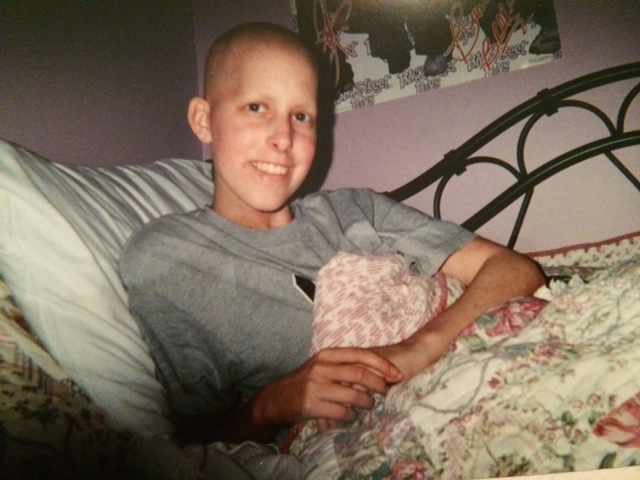Nine months in the hospital. Eighteen rounds of chemotherapy. A 10-hour surgery to amputate her leg. A five-hour surgery to fix blood clot complications. A third surgery to remove two cancer nodules from her lung.
These are just some of the challenges Coquitlam, B.C. resident Analyn Purcell, now 32, faced during her two-year battle with osteosarcoma, a form of bone cancer that claimed the life of Terry Fox.
Purcell was just 13 when the debilitating ache in her knee first began. Doctors dismissed it as growing pains.
“I just had a feeling that something wasn’t quite right, but when you’re 13 no one listens to you. What do you do?” Purcell recalls.
Months later, Purcell fell while playing basketball at school and smashed her knee, which immediately ballooned in size. When the swelling didn’t go down, doctors recommended six weeks of physiotherapy. That didn’t work either.
It wasn’t until Christmas 1997 that things became unbearable. Purcell woke up in the middle of the night sobbing from the pain, begging her mom to cut her leg off because it hurt so much.
This time doctors took the teen more seriously, running tests and countless scans. “That was finally when everybody around me was like, ‘Oh, something’s really wrong’,” she says.
Purcell still remembers the day she was diagnosed with osteosarcoma: Jan. 22, 1998.
“I cried because my mom was crying. I was in shock,” she says. “I don’t think any of us expected cancer…we expected it to be a benign tumour, or a cyst, or something of that nature. Cancer did not even enter the conversation.”
And so began the battle for her life, a fight Purcell would ultimately win – but not before spending months in the hospital for treatment, followed by the amputation of her leg. It was while relearning to walk with a prosthetic after surgery that Terry Fox became her inspiration.
“I threw my [prosthetic] leg across the room a lot, I cried a lot. I was in a lot of pain trying to figure out how my leg worked and that’s really when Terry’s story came in,” says Purcell.
“I kept thinking, if he could do this, if he could figure out how to walk – and run with a prosthetic – then I can do this. It was a big motivator for me at that point.”
Purcell, now a mother of three, celebrated 16 years cancer-free in December 2015. Her story has been a happy one – but it isn’t over yet.
Little is known about the long-term effects and potential consequences of giving children chemotherapy, she explains, and more research is desperately needed.
“We have to beat this disease, but we also have to look into the quality of life for people that are surviving,” Purcell said. “We can’t give up, we have to keep going. This research is for future generations. So your kids don’t get cancer, and so mine don’t.”

Analyn Purcell, during treatment for osteosarcoma